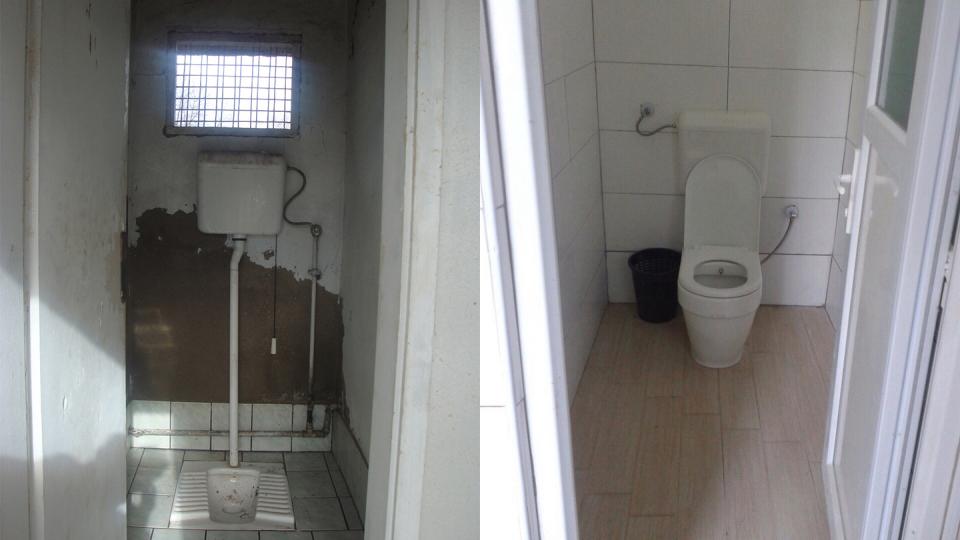Colorado joins Kosovo club to restore sanitation in blighted local schools

Through a $50,000 Rotary Foundation Global Grant, the Rotary clubs of Edwards, Colorado, USA, and Peja, Kosovo, brought clean water and new bathroom facilities to six area schools in Peja.
Photo Credit: Courtesy of Richard Dangler
Photo Credit: Courtesy of Richard Dangler
Blighted schools in the mountain city of Peja in western Kosovo are a reminder of the ethnic strife and war that ravaged this area in the 1990s.
To restore ruined sanitation facilities in some of those schools, local Rotary members recently partnered with their counterparts from Colorado, USA. Though residents have been slowly rebuilding the city's infrastructure after years of neglect under earlier governments, most resources are going to improve roads, rebuild homes, and create new businesses. Little money remains to restore the schools.
As a result, students have fallen ill, stayed home from school, and been unable to focus on their education, says Neshad Asllani, a member of the Rotary Club of Peja and a physician with the Health Center of Excellence in Kosovo. "Healthy students make better students," he says.
Last year, his club joined the Rotary Club of Edwards, Colorado, USA, to bring clean water and modern toilet facilities to six area schools with the worst conditions. The $50,000 project was funded by a Rotary Foundation global grant and completed in September. It replaced all the commodes and sinks, repaired leaking roofs, and installed floor tiles, fixtures, and new septic tanks.
The project was initiated by Edwards club member Richard Dangler, who'd spent time in the area in 2008-09 as the chief water engineer for International Relief and Development, helping to install a $1 million potable-water system in Kosovo that was funded by USAID. Although that system benefited most homes and businesses, the pipes didn't extend to schools in rural areas. Dangler recalls that those schools' water and sanitation facilities were "ghastly," with flooded commodes; dirty water for washing; and crumbling walls, floors, and roofs that made the facilities almost unusable.
Dangler traveled to Peja in 2013 to plan the project there with local Rotary members. He says the community was instrumental in carrying it out.
"We held planning meetings where 100 people would show up," says Dangler. "They were incredibly engaged. They showed a desire and readiness to be included in planning, designing, and maintaining post-construction tasks. Out of all the war-torn and underdeveloped places in the world I've worked, I found the Kosovo people had the greatest willingness to help themselves."
The project also calls for water and sanitation education in the six schools. Students will design posters promoting proper hygiene practices, and will learn in science classes about diseases transmitted by unsanitary habits. The Peja club will create health committees made up of faculty and students for each school. Members also will oversee maintenance of the toilet facilities and devise sanitary and hygiene awareness campaigns to educate the entire community.
Asllani notes that although the war's impact lingers, projects like this one are helping to restore area residents' spirit as well as the region's infrastructure. "The goodwill of NGOs and organizations like Rotary has helped our people overcome their animosities from the past by establishing projects that look to the future."
Adds Dangler: "The people who lived through this conflict want to put this period behind them. At the top of the local community's priority list was improving the sanitary conditions of the schools. Focusing on the children and their education was the best way for them to look toward the future rather than to the past."
By Ryan Hyland
Rotary News
3-Feb-2015